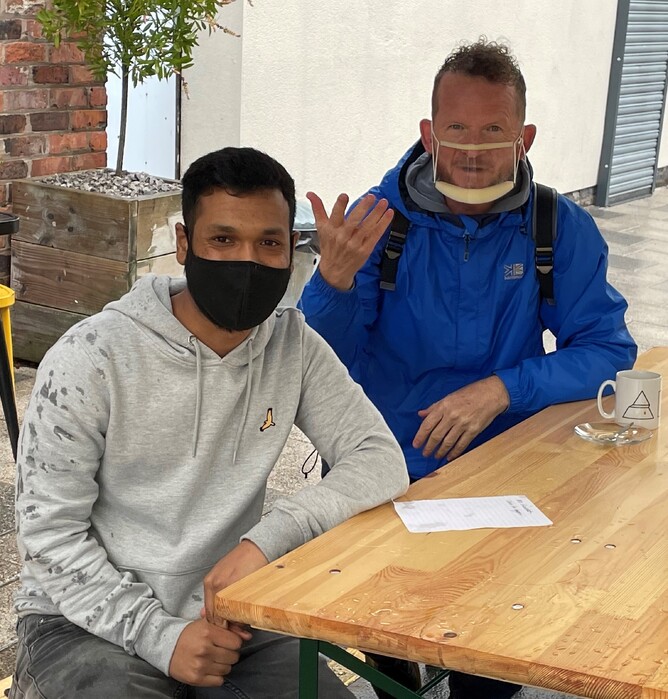How does requiring support for work or everyday life make a person feel? And given that the need for support and help is so universal, why do we find it so hard to ask for it?
A colleague once asked me: ‘Don’t you find it a nuisance that you always need to have a support worker with you?’. The question surprised me. I replied that on the contrary, I viewed my lipspeakers as a bonus. With a lipspeaker there, I was never alone, always supported and had a sounding board if I needed one. The colleague said she had not thought of the positives in the situation.
I have been to many events and meetings when attending with a lipspeaker drew lot of attention or surprise. It can take people a while to get used to the idea of another person in the room.
When I had my first and only meeting with the CEO of a Deaf charity I worked for, they looked askance at my lipspeaker then asked me, ‘Can’t you lipread?’. I despaired a little that someone who really should have known better was making assumptions about lipreading and using a type of shaming – whether intentionally or not – about my need for a support worker.
My reply to the CEO: ‘Yes, I can lipread. I have not met you before and we only have 30 minutes to talk, so I would not know whether you are lip-readable or not and I want to make the most of our conversation.’
The skill and professionalism of lipspeakers needs celebrating much more broadly. Far too few people who could benefit from them making English clearly lipreadable do so. While we remain squeamish about people who require support, it will be difficult for more people to find out what is available and how it could benefit them.
As well as occasionally being made to feel a bit self-conscious about requiring support, I have also been at the sharp end of the question regarding support costs and have felt the moral pressure exerted.
But reflecting on the broader questions around needing support, I have realised that this is in fact mostly about social norms, not the actual question of support or its costs.
We all need support, don’t we? That support is often not something we have to bring into a room for a meeting, or onto a video call, but it’s there in the background. It keeps us going. The health crisis, with its forced merging of work and home lives, has highlighted this more than ever.
Which one of us manages our life without help, whether personal or professional? That help requires resources of different types. Billions of pounds have been spent during this crisis on providing help in various forms. When being forced to stay at home or close your business became ‘normal’, resources were suddenly found.
The support we need as disabled people is not – and should not be considered – in a separate category. It’s not disposable or exceptional – it’s just that our support need is clearer and foregrounded.
So could it be time to re-think our attitude to support?
Something I find fascinating in my work as a trainer and coach the difficulty many people have in asking for help. What is it about our culture which leads us to feel that we should be able to ‘do it all’ and ‘know it all’? Have you ever felt that asking for help would somehow be cheating or that you were admitting to weakness? Who are we kidding really? How would we learn without input and support from others?
There is now good evidence that the ability to ask for help is actually seen as a strength. In her book, Dare to Lead[1], Brené Brown describes asking for help as a ‘power move’:
‘We asked a thousand leaders what do your team members do that earns your trust? The most common answer – asking for help. […]
When we refuse to ask for help, we will find that we keep getting the same projects that leaders know we can do.’ […] It has nothing to do with intelligence or competency or raw talent; it has everything to do with a relationship of trust.’
So there we have it. It comes down to trust. We need to be able to trust others better. And if we happen to be deaf or disabled and explicitly require support, we get a lot of experience of this and become good at both asking for and making best use of support.
Times are changing. So are attitudes. I look forward to when someone chooses to ask me ‘Isn’t it great to always have support?’.
And I would smile and reply ‘Yes, it really is!’.
[1] Brown, B. 2018. Dare to Lead. London: Penguin Random House
